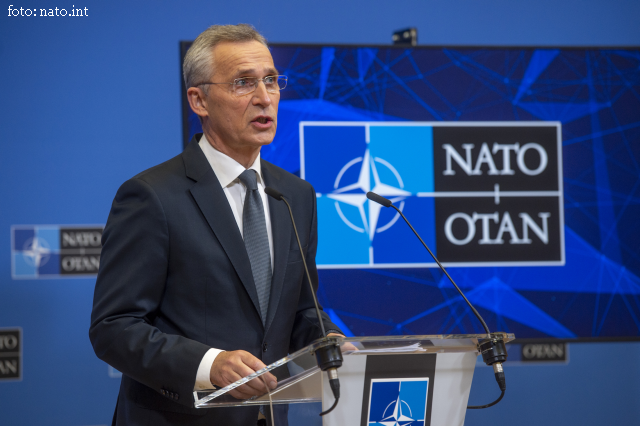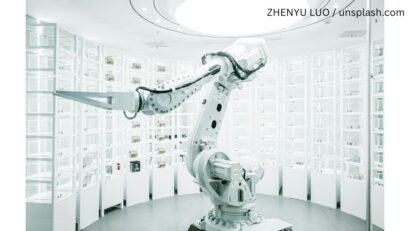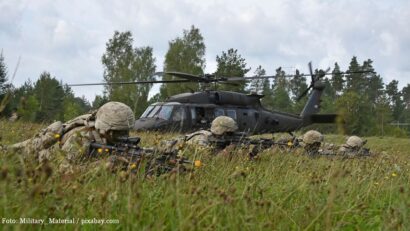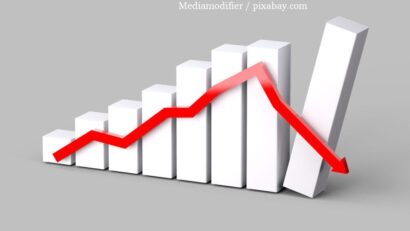A high-stakes candidacy
Jens Stoltenberg will step down as NATO secretary general in September, with his replacement still to be decided.

Corina Cristea, 23.03.2024, 14:19
Jens Stoltenberg will step down as NATO secretary general in September. One candidate to replace him is the 57-year-old Dutch prime minister Mark Rutte, who has made a bid for it for some time. He has the backing of a number of important states like the United States, Great Britain, Germany and France. But it’s not all over yet, because the job, which has to go to a candidate from Europe, needs the unanimous votes of all the 32 NATO member states. Following requests from the countries in Eastern Europe to share in the top positions within the North Atlantic Alliance and the European Union, the Romanian president Klaus Iohannis, whose second five-year term will come to an end this autumn, on 12th March launched his bid to become NATO secretary general. As arguments in his favour he cited a deep understanding of the challenges facing NATO and Romania’s performance as a NATO member. Estonia’s prime minister Kaja Kallas also showed an interest in the position of NATO secretary general. Political advisor and expert on global policies Radu Magdin considered the chances each candidate has to win the top NATO job:
“Having the backing of the United States naturally counts a lot, beyond the official processes. In my view, the United States is already in Mark Rutte’s team, also owing to an excellent bilateral relationship. I believe The Netherlands enjoys three key bilateral relationships that are very helpful at this point: its historical relationship with the Americans, and the relationship with the British and the Germans. So, it has three basic alliances in this respect. Romania enjoys the respect of these states, but in my view it does not have the same level of gravitas as The Netherlands. Mark Rutte is not to Hungary’s liking, but then Hungary generally likes to be in opposition, whether it’s in the European Union or NATO. The Hungarian partners can be useful to Iohannis, in the sense that they can keep Rutte busy for a while, but let us not forget that, just like in Europe, if the Americans or other important partners really want Rutte and there’s a big majority for Rutte, it’s unlikely that a state like Hungary can resist. Until a few months ago, Estonia’s prime minister Kaja Kallas was a strong candidate for any top NATO or European job. I think she conducted a great campaign for what we call top leadership. She positioned herself through op-eds, interviews, etc. She was a strong and charismatic voice representing Eastern Europe. Unfortunately for her, she was caught up in a domestic scandal that also spilled out internationally and which is partially undermining her candidacy. There might also appear other candidates. In my view, NATO is not the kind of organisation that tolerates competition. Being a security structure and owing to the current context, it’s not like it will host a kind of Eurovision contest to see who sings better. So, I believe that in the coming period, in Brussels, the Americans and other allies will try to shut down this competition as fast as possible, so as to demonstrate its quick decision-making and acting abilities.”
When his candidacy was announced, president Klaus Iohannis also enumerated the country’s good points in the competition, among which the fact that Romania was a pillar of stability and security in the region. President Iohannis emphasized the fact Romania earmarked 2.5% of its GDP for defense, also highlighting Romania’s contribution to NATO missions and operations as well as the military presence in the West Balkans, but also the contributions to maintaining security in the Black Sea region.
Eastern Europe’s contributions to the decisions taken inside NATO were valuable, Romanian president Klaus Iohannis also stated. Iohannis went on to say the Alliance would take the best possible decisions with a balanced, strong and influential representation from this region.
However, the political analyst believes, “it is hard for president Iohannis to have a serious leverage at the negotiations table”. Also, Radu Magdin believes the president is “undermined” by his own failure to invest in Romania’s image and influence in the last decade. Concurrently, Radu Magdin voiced his doubt that such an advanced candidacy as that of the Dutch Mark Rutte could be “derailed”.
Notwithstanding, political analyst Cristian Pîrvulescu believes Romanian president Klaus Iohannis’s chances are “very good”. According to Cristian Parvulescu, “President Iohannis is a politician who makes his calculations, who does not expose himself uselessly, who prepares his moves. He can be quite aptly compared to a chess player, not to an amateur, but to a grand master. And this move he makes, immediately after the meeting he had with the president of Montenegro could be a sign of the fact that the coalition meant to support him is strong enough, it is a coalition made of Central and Eastern-European states. “Do bear in mind, Parvulescu also recalls, Hungary’s blunt declarations against Mark Rutte, the declarations of leaders of the Baltic States or Poland, who support the necessity of an Eastern leadership at NATO and European level. All that proves a confrontation between the East and the West is likely to occur, which is something nobody wants, but when the East comes up with a strong official candidacy, and a candidacy of a leader who is recognized at European level, I believe President Iohannis’ chances are very good.”
President Klaus Iohannis’s possible appointment could mark a historic stage, since Iohannis could be the first East-European to be appointed for the Alliance’s highest-ranking position. At present, Romania has a high-ranking representation at NATO since October 2019, when Mircea Geoana was appointed Deputy Secretary General of the Alliance.






























